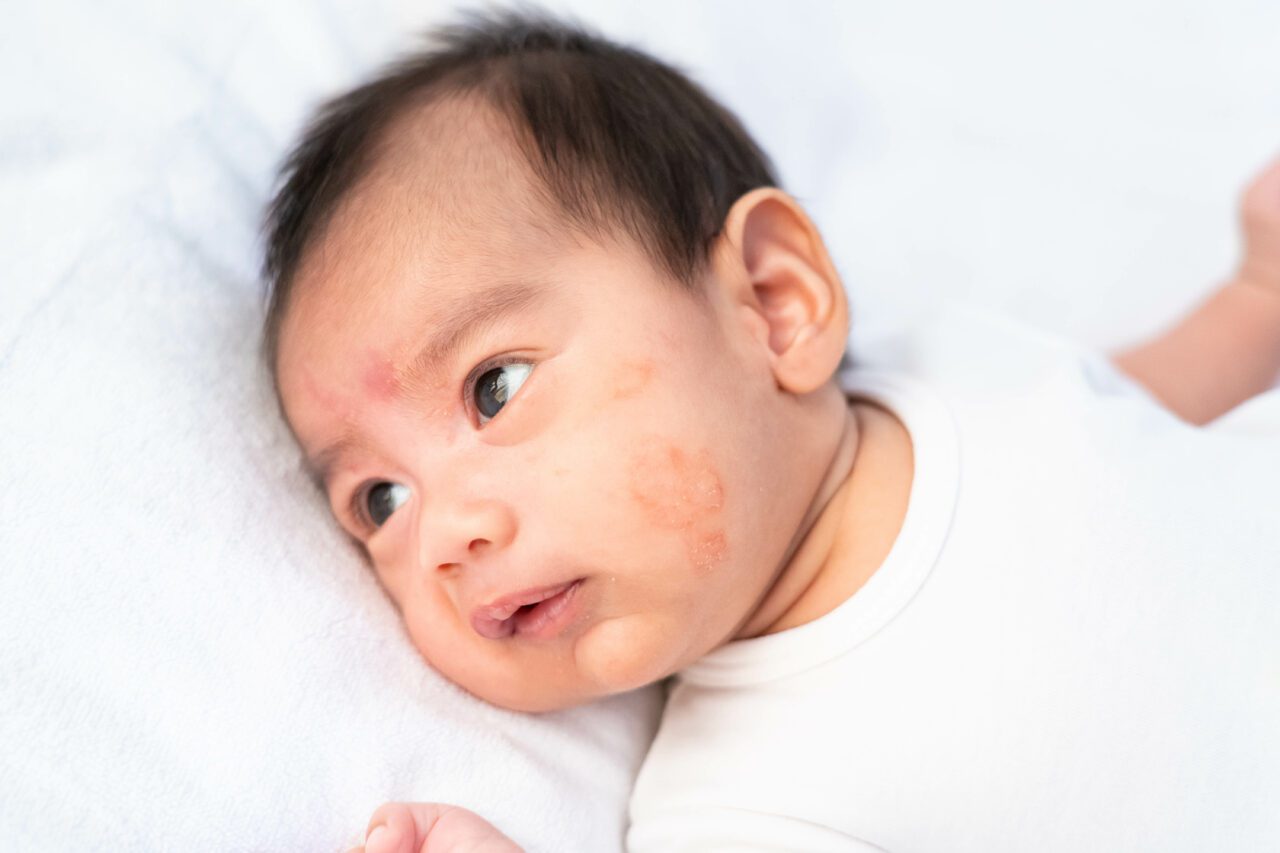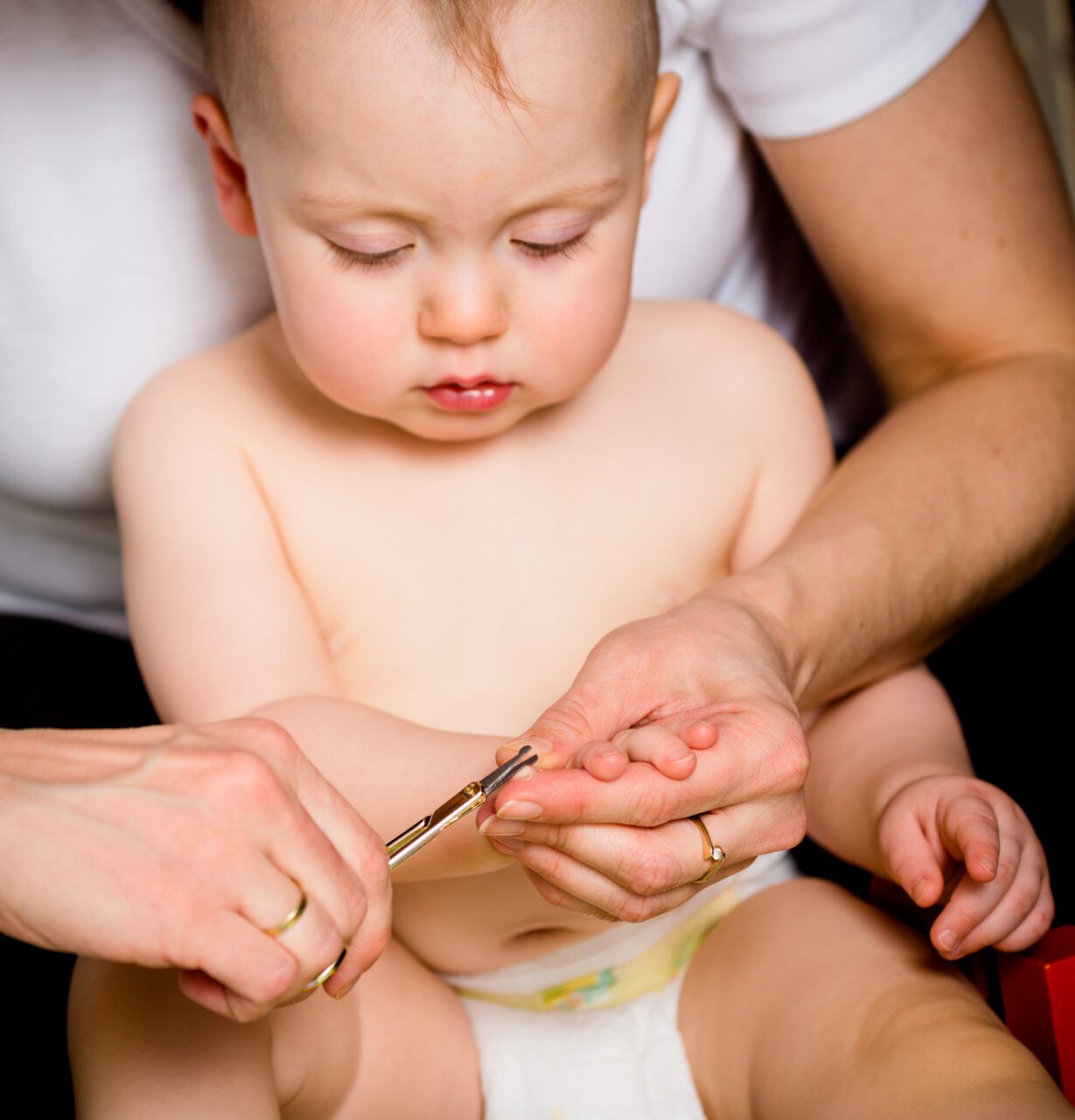Infant eczema rash is a common skin condition that affects many babies around the world. It can be a source of discomfort for both the child and the parents, as it often leads to itching, redness, and inflammation. Recognizing and treating infant eczema rash is essential to provide relief and improve the quality of life for the little ones. In this comprehensive guide, we will delve into the various aspects of infant eczema rash, from its symptoms and causes to effective treatment options. So let’s dive in and gain a deeper understanding of this condition that affects our precious little ones.
Understanding Infant Eczema (Atopic dermatitis) Rash
What is Infant Eczema Rash?
Infant eczema rash, also known as atopic dermatitis, is a chronic inflammatory skin condition that commonly affects infants and young children. It is characterized by dry, itchy, and inflamed skin, often accompanied by redness and small bumps. The rash typically appears on the face, scalp, arms, and legs, but it can spread to other parts of the body as well.

Symptoms of Infant Eczema Rash
Recognizing the symptoms of infant eczema rash is crucial for early intervention and treatment. Some common symptoms include:
- Dry and scaly skin patches
- Redness and inflammation
- Intense itching
- Small bumps or blisters that may ooze or crust
- Thickened or leathery skin in affected areas
Causes of Infant Eczema Rash
While the exact cause of infant eczema rash is still unknown, several factors are believed to contribute to its development. These include:
Genetic predisposition: Children with a family history of eczema, asthma, or allergies are more likely to develop infant eczema rash.
Environmental triggers: Exposure to certain irritants, such as harsh soaps, fragrances, dust mites, and pet dander, can trigger or worsen eczema flare-ups.
Skin barrier dysfunction: Babies with a compromised skin barrier are more susceptible to moisture loss, allergen penetration, and inflammation.
Immune system dysfunction: An overactive or weakened immune system can play a role in the development of infant eczema rash.
Recognizing Infant Eczema Rash
How to Identify Infant Eczema Rash?
Recognizing infant eczema rash can be challenging, especially for first-time parents. However, there are certain signs that can help you identify this condition:
Appearance: The rash often presents as dry, red patches of skin that may be accompanied by small bumps or blisters.
Location: Infant eczema rash commonly appears on the face, scalp, arms, and legs, but it can also affect other areas of the body.
Itching: Babies with eczema tend to scratch the affected areas frequently due to the intense itchiness.
Flare-ups: The rash may come and go in cycles, with periods of remission followed by flare-ups triggered by various factors.
Discomfort and irritability: Infants with eczema may show signs of discomfort, irritability, and difficulty sleeping due to the itchiness and inflammation.
Differential Diagnosis: Is It Infant Eczema Rash or Something Else?
Infant eczema rash shares similarities with other skin conditions, making an accurate diagnosis essential. Here are some skin conditions that may resemble infant eczema rash:
Diaper rash: Diaper rash typically affects the diaper area, whereas eczema rash appears on other parts of the body.
Cradle cap: Cradle cap causes flaky, scaly patches on the head and scalp, while eczema rash can appear on the face, arms, and legs.
Heat rash: Heat rash is characterized by small, red bumps and occurs due to excessive sweating, whereas eczema rash is associated with dry, itchy skin.
Contact dermatitis: Contact dermatitis occurs when the skin comes into contact with an irritant or allergen, leading to a rash. It can be differentiated from eczema rash based on the trigger and location of the rash.
If you are unsure about the nature of your baby’s rash, it is always best to consult a pediatrician or dermatologist for a proper diagnosis.
How to Treat Eczema Rash?
Gentle Skincare Routine
Establishing a gentle skincare routine is crucial for managing infant eczema rash. Here are some tips to keep in mind:
Use mild, fragrance-free cleansers: Opt for gentle cleansers specifically formulated for sensitive skin. Avoid products with harsh chemicals or fragrances, as they can irritate the skin.
Moisturize regularly: Moisturizing the skin is essential to keep it hydrated and prevent dryness. Choose moisturizers that are hypoallergenic and free from additives. Apply the moisturizer immediately after bathing to lock in moisture.
Avoid excessive bathing: Frequent bathing can strip the skin of its natural oils, leading to dryness. Limit bathing to once a day or every other day, using lukewarm water.
Pat dry gently: After bathing, gently pat the skin dry with a soft towel. Avoid rubbing, as it can further irritate the skin.
Dress in soft, breathable fabrics: Choose clothing made of cotton or other soft, natural fibers that allow the skin to breathe.
Topical Medications
In cases where gentle skincare alone is not sufficient, your pediatrician may recommend topical medications to manage the symptoms of infant eczema rash.

Lifestyle Modifications
Apart from skincare and medications, certain lifestyle modifications can help manage infant eczema rash:
Identify and avoid triggers: Pay attention to any factors that seem to trigger or worsen your baby’s eczema flare-ups. Common triggers include certain foods, allergens, irritants, and environmental factors. Take steps to minimize exposure to these triggers.
Keep nails short: Trim your baby’s nails regularly to prevent scratching and minimize the risk of skin infections.
Maintain a comfortable environment: Keep the temperature and humidity levels in your baby’s environment balanced. Excessive heat or dryness can aggravate eczema symptoms.
Be mindful of food allergies: If you suspect that certain foods may be triggering your baby’s eczema, consult a pediatrician or allergist for allergy testing and guidance.
Alternative Therapies
In addition to conventional treatments, some alternative therapies may provide relief for infant eczema rash. While scientific evidence is limited, these therapies are worth exploring with the guidance of a healthcare professional:
Wet wrap therapy: This involves applying a moisturizer to the affected areas and covering them with wet bandages or clothing to lock in moisture and reduce inflammation.
Oatmeal baths: Adding colloidal oatmeal to your baby’s bathwater can help soothe itching and moisturize the skin.
Probiotics: Some studies suggest that probiotics, either taken orally or applied topically, may help improve eczema symptoms by promoting a healthy gut microbiome.
Herbal remedies: Certain herbs, such as chamomile and calendula, have anti-inflammatory and soothing properties. Consult with a healthcare professional before using any herbal remedies on your baby.
It is important to note that alternative therapies should not replace conventional medical treatment but can be used as complementary approaches under the guidance of a healthcare professional.
FAQs about Infant Eczema Rash09
Q: Can infant eczema rash be cured completely?
A: While there is no known cure for eczema, most babies outgrow it by the age of 2 or 3. With proper management and treatment, symptoms can be minimized.
Q: Can certain foods trigger eczema flare-ups in infants?
A: Some infants may be sensitive to certain foods, such as cow’s milk, eggs, peanuts, and soy. If you suspect a food allergy, consult a pediatrician for proper testing and guidance.
Q: Is it safe to use over-the-counter creams on my baby’s eczema rash?
A: It is best to consult a pediatrician before using any over-the-counter creams or medications on your baby’s skin. They can recommend appropriate products based on your baby’s age and the severity of the rash.
Q: Can breastfeeding help prevent or reduce the risk of infant eczema rash?
A: Breastfeeding has been associated with a lower risk of eczema in infants. The antibodies and nutrients in breast milk can support a healthy immune system.
Q: Can stress worsen eczema symptoms in infants?
A: Stress and emotional factors can potentially trigger or worsen eczema flare-ups in some individuals, including infants. Creating a calm and supportive environment for your baby can help manage stress levels.
Q: Should I be concerned about my baby’s eczema rash becoming infected?
A: Babies with eczema are more susceptible to skin infections due to scratching and compromised skin barrier. If you notice signs of infection, such as increased redness, warmth, pus, or fever, seek medical attention.
Conclusion
Infant eczema rash is a common skin condition that can cause discomfort and distress for both babies and parents. Recognizing the symptoms and triggers of eczema is crucial for effective management. With a gentle skincare routine, appropriate medications, lifestyle modifications, and guidance from healthcare professionals, it is possible to alleviate symptoms and improve the quality of life for infants with eczema. Remember to consult a pediatrician or dermatologist for personalized advice and treatment options. By taking proactive steps, you can help your baby find relief from eczema and ensure their skin stays healthy and happy.
Related posts:




